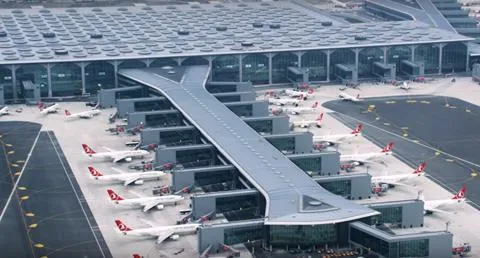Airlines may create strategic joint ventures or decide to merge with or acquisition of a market player to broaden their flight network in order to benefit from this new international hub to the fullest extent possible.
However, such actions may be reviewed by the Turkish Competition Authority (‘the Authority’) since they could lead to dominance in the market and abuse of dominant position would harm many competition principles[1]. The authority regulates the competition in skies in accordance with the Law on Protecting Competition numbered 4054 (‘Code no. 4054’).
Protecting competition can be challenging in terms of airline transportation considering the possible effects of bilateral air transport agreements. Additionally, General Directorate of State Airports Authority’s control over Slot Coordination Centre is a highly controversial topic considering its close relationship with Turkish Airlines. The Authority has evaluated many cases concerning competition in the air, and likely to have more of them in the future. Some of the cases will be summarized below.
Mergers or Acquisitions
On its decision dated June 08, 2017 and numbered 17-19/290-127 the Authority evaluated permit demand for the transition from joint control to full control by Pegasus Hava Taşımacılığı A.Ş’s (‘Pegasus’) in acquisition of IHY Izmir Havayollari A.Ş. (‘Izair’). the Authority considered market share of Pegasus and Izair, and their aircraft numbers since both participate in air transportation and aircraft leasing. The Authority permitted the transaction by stating that since many entities participate in the market, the acquisition would not create a dominant position that damages competition in the sector.
Similarly, the Authority’s decision dated November 04, 2007 and numbered 07-31/323-119 was about the Deutsche Lufthansa AG’s (‘Lufthansa’) acquisition of Güneş Express Havacilik A.Ş.’s (‘Sun Express’) 50% shares from Condor Flugdienst GmbH (‘Condor’). The other half of Sun Express’ shares were belonging to Turkish Airlines (‘THY’).
The Authority referred to EU regulations which allow collaboration agreements that are in favor of consumers and trade volume of the market. The Authority also held that the transaction will not eliminate competition in a substantial part of the relevant market by the condition that Lufthansa and its affiliates, Sun Express, and Turkish Airlines will not increase their flight number on Izmir-Cologne, Izmir-Stuttgart, Izmir-Berlin, Istanbul-Frankfurt routes.
For the reasons stated above, the Authority granted a 2 years long exemption by its decision.
Restrictive Trade Practices
The Authority conducted a preliminary inquiry by its decision dated November 28, 2013 and numbered 13-66/919-389, on a claim of price fixing between Turkish Airlines (‘THY’) and Saudi Airlines (‘Saudia’).
An applicant, who demanded anonymity, complained that the highest cost item of hajj was flight tickets. Accordingly, while round trip Europe flights were amounting 150-200 in Euros, THY was pricing above 530 Euros for Hajj trips. THY and Saudia were the only airlines that fly on the given route and their prices were quite similar. The applicant argued that THY and Saudia were monopolizing the route by preventing other airlines to compete.
The Hajj Agreement (‘The Agreement’) which is signed between THY and Saudia was providing for an equal share of hajj passengers. Pursuant to this agreement, each side shall pay a royalty for an extra passenger if exceeds its quota.
The Agreement was abolishing uncertainty, main essentiality of the competition. Therefore, parties could reach made-up market equilibrium. The Authority also remarked that Hajj passengers were relatively less sensitive to pricing because of strong demand for the trip.
The Authority held that the Agreement was constituting market share which was prohibited by the 4th Article of the Law on Protection of Competition numbered 4054 (‘Code no. 4054’). Although 2nd Article of the Code no. 4054 provided that all economic activities affecting Turkish goods and services market are within its scope, an important exception to this are interstate bilateral aviation agreements. These agreements must be taken as the basis in terms of a conflict with domestic regulations in accordance with the 90th Article of the Turkish Constitution.
However, in the given case the legal obligation was arising from Saudi Hajj Instructions Code instead of a bilateral aviation agreement. THY argued that non-compliance with the mentioned regulation could cause slot allocation problems during hajj.
The Authority stated that it was not necessary to open an investigation since the mentioned agreement was a consequence of the act of a state. Nevertheless, the Authority demanded the use of positive comity by the General Directorate of Civil Aviation and Minister of Foreign Affairs in order to abolish the restrictive effects of the Agreement.
[1]Hülya Göktepe, Havayolu Taşımacılığı Sektörü ve Rekabet Hukuku, Havayolu Taşımacılığı ve Ekonomik Düzenlemeler Teori ve Türkiye Uygulaması, Sivil Havacılık Genel Müdürlüğü, Ankara, 2015, p. 211.
Author: Kaan Erdoğan


